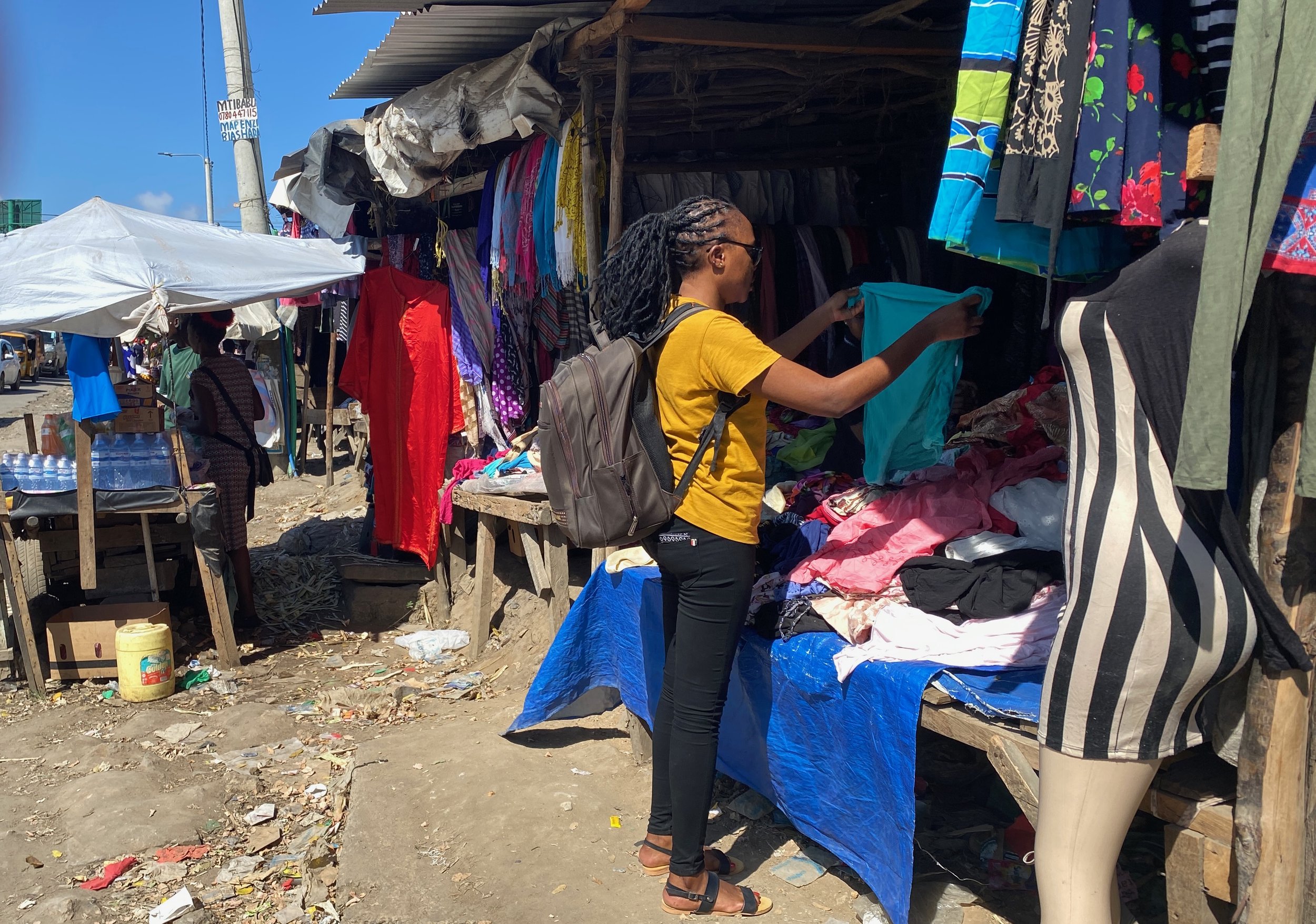From a life of hustling to one of paid employment
Walk around any Kenyan town such as Kakamega, and you’ll be impressed with the entrepreneurial spirit of the people. There are large businesses such as banks, department stores and sugar processors.
There are many micro-enterprises too.
It's a way of working called “hustling.” It can mean buying something --- almost anything – and then finding a way to sell it for a bit more. Or carrying goods from one place to another. Or renting a motorbike for the day and using it as a taxi. Maybe, buying raw leather and making belts. Or buying maize (corn) and roasting ears over a charcoal fire and a grille. Anything with a low cost of entry and a ready market.
Often, these micro-businesses sell used clothing from the Rich World. It’s called “mitumba,” and it’s seen its fair share of critics. Some outside observers say used clothing gives people in the developing world a chance to dress comparatively well, for not much money. Others say that the mitumba trade has killed off indigenous clothing manufacturing. Whichever way you want to look at it, many of the micro-enterprises in Kakamega sell used clothing, shoes and other goods.
And so many people in Kenya hustle. It’s exhausting, it’s nerve-wracking because the vendor never knows if they’ll make any revenue at all that day, much less profit. They may get their stock stolen. The weather can dampen customer traffic and damage merchandise to the point of unsaleability.
The sad fact of all this hustling is that many people stay desperately poor. It’s rare for a micro-enterprise hustler to build a more substantial business that can provide a good source of revenue, earnings and a future on which to build a family. But most of these small business owners know someone who did “make it” and this keeps their hopes alive.
The Kakamega economy offers very few formal “jobs” with salary, benefits and certainty. Those jobs that exist, tend to go to those who are well connected.
There’s also a big problem with people in high positions “selling” jobs – the job goes to whoever offers the biggest bribe. Few job-seekers can afford perhaps KSH 200,000 (about C$1,800) or more to buy their way onto the job ladder.
So, people hustle.
CES offers the chance for wage employment
CES has always been about helping young people in western Kenya build a better future. We do this through providing education that leads to careers in teaching, nursing and other medical fields, as well as business. We select students who come from poor backgrounds, whose families are unable to support them in gaining an education.
There are three main kinds of barriers that would otherwise keep our students trapped in a life of hustling rather than getting a leg up on a career ladder.
One is the need to meet daily living expenses for themselves and often, other family members too. They can’t afford the time to sit in a classroom – how are they going to earn their food and accommodation? CES provides enough for them to live on.
Second is the academic cost -- tuition, books, incidentals such as lab fees and research trips. We adjust the support we give to each student according to the costs involved – sciences often have more academic costs than do other programs of study.
The third barrier is an inability to imagine a better, hustle-free future for themselves. Often, our students come from a long family history of poverty, and that’s all they know. CES has a mentorship program in which experienced university students and graduates are assigned a graduating high school student to mentor.
Your donations to CES help give young Kenyans, who might otherwise be limited to a career of hustling, with a chance on the career ladder.
On my recent visit to Kenya I was honoured to meet several students who have gone on to good careers with steady salaries. Please click here to hear first-hand about how CES donors like you have helped them towards the Kenyan dream – a steady job.

